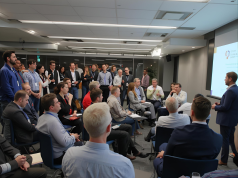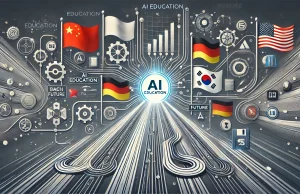As we hurtle deeper into the 21st century, the global workforce faces unprecedented challenges and opportunities. The QS World Future Skills Index 2025 serves as a barometer of how well education systems worldwide are equipping individuals with the skills required to navigate an evolving labor market. This index offers valuable insights into the future of work, emphasizing the critical role of education in shaping adaptable, tech-savvy, and employable workers. While some regions demonstrate impressive strides, the findings reveal concerning disparities that demand urgent action.
A New Era of Skills: Key Findings
The QS World Future Skills Index 2025 identifies three primary skill pillars—Knowledge, Adaptability, and Employability—as the cornerstones for future-ready workers. Each of these reflects the qualities that modern industries prioritize in their hiring practices, shaping the evolving definition of what it means to be “skilled.”
1. Knowledge: The Digital Transformation
In an age dominated by technology, digital literacy has emerged as the foundation of knowledge for the future workforce. The index underscores the growing importance of skills like coding, data analysis, and proficiency in emerging technologies like artificial intelligence (AI) and blockchain.
- Countries like Singapore, South Korea, and Finland lead in integrating these digital competencies into education systems. This has resulted in workers who are not just adept at using technology but can innovate and adapt to new tools seamlessly.
- Conversely, many developing nations and even some developed ones struggle to incorporate tech-forward curricula. Workers in these regions are at risk of falling behind as industries become increasingly automated.
2. Adaptability: Lifelong Learning as a Necessity
Modern workers face rapidly changing industries that demand constant reskilling and upskilling. The QS Index highlights nations like Denmark and the Netherlands, where lifelong learning is embedded in national education policies, allowing workers to transition smoothly between jobs or industries.
- Adaptability also includes fostering critical thinking, problem-solving, and creativity—skills that enable workers to navigate complex, non-linear challenges in their roles.
- The report flags concerns in countries where education systems still emphasize rote memorization over critical thinking, leaving workers ill-equipped for unpredictable job markets.
3. Employability: Bridging the Education-Industry Gap
While universities play a critical role in imparting theoretical knowledge, employability hinges on practical skills and real-world application. The index praises partnerships between academia and industries in countries like Germany and Japan, where apprenticeships and hands-on training ensure that graduates meet employers’ expectations.
- However, the index also identifies a worrying trend: the “employability gap.” In many regions, even graduates from prestigious institutions struggle to secure jobs because their education does not align with market demands. This is especially pronounced in developing economies, where systemic issues exacerbate mismatches between skills and job availability.
Workers at the Crossroads
For workers, these findings are both a wake-up call and a blueprint for action. The global economy’s demands are shifting rapidly, and those who fail to keep pace risk being left behind. The QS Index outlines several trends that directly impact workers:
1. The Rise of Hybrid Roles
Many jobs now require a mix of technical expertise and soft skills. For example, a data analyst may also need strong communication abilities to present findings effectively, while healthcare professionals increasingly rely on digital tools to enhance patient care.
- Workers must embrace this hybridity, seeking to combine technical proficiency with interpersonal and leadership skills.
2. Automation and AI
As automation transforms industries like manufacturing, logistics, and customer service, workers must pivot towards roles that machines cannot easily replicate—those requiring empathy, creativity, and strategic thinking.
- Reskilling initiatives are essential, especially for mid-career professionals whose roles may be rendered obsolete by technology.
3. Remote Work and Global Mobility
The pandemic accelerated the adoption of remote work, creating opportunities for workers to participate in global markets. However, this requires proficiency in digital collaboration tools and cultural adaptability.
- Workers in regions with limited access to high-speed internet or digital education face significant barriers in leveraging these opportunities.
Confronting the Challenges: Measures for Improvement
The QS World Future Skills Index 2025 highlights the steps necessary to address these challenges and empower workers. Governments, educational institutions, and private sectors must collaborate to create a robust ecosystem that prioritizes future skills. Below are some actionable measures:
1. Overhauling Education Systems
- Emphasizing Critical Thinking and Creativity: Curricula must move beyond rote learning to foster problem-solving and innovation.
- Integrating Technology Training: Schools and universities should offer courses in coding, data analysis, and AI, even at basic levels, to prepare students for a tech-driven world.
- Early Exposure to Career Skills: Partnerships with industries can introduce students to workplace dynamics, ensuring a smoother transition from education to employment.
2. Investing in Lifelong Learning
- Government-Led Reskilling Initiatives: Policymakers should incentivize continuous education through subsidies, grants, and tax breaks for workers pursuing further education.
- Online Platforms for Upskilling: Digital tools like Coursera, Udemy, and LinkedIn Learning can democratize access to quality education. Companies should encourage their workforce to leverage these platforms.
- Industry-Led Training Programs: Employers can implement in-house training that aligns with technological advancements and market needs.
3. Creating Flexible Work Pathways
- Universal Access to Digital Infrastructure: Workers need reliable internet access and digital tools to participate fully in remote and hybrid work models.
- Career Transition Support: Governments and private organizations should establish programs that help displaced workers transition into new industries, with personalized career counseling and skill assessments.
- Gig Economy Regulation: As freelance and contract work grows, labor laws must adapt to ensure workers in the gig economy have access to benefits and protections.
4. Addressing Inequality in Access to Skills
- Closing the Urban-Rural Divide: Governments should prioritize infrastructure and education initiatives in rural areas to bridge the skill gap.
- Encouraging Diversity in Tech: Efforts to include underrepresented groups, such as women and minorities, in STEM fields can expand the talent pool and foster innovation.
- Global Skill-Sharing Platforms: Countries can collaborate to create platforms where workers can exchange knowledge and learn from best practices across borders.
A Future-Ready Workforce: The Road Ahead
The QS World Future Skills Index 2025 is not just a measure of where we stand; it is a call to action. The future of work demands a proactive approach to education, training, and policy-making, ensuring workers are not only employable but empowered to thrive in a dynamic environment. Governments must prioritize skill-building initiatives, industries must embrace partnerships with academia, and workers must take ownership of their learning journeys.
Ultimately, a future-ready workforce is one that can adapt, innovate, and lead. The stakes are high, but the rewards—a resilient, inclusive, and prosperous global economy—are well worth the effort.
How do you envision the future of skills and work in your region? Let’s discuss!




























